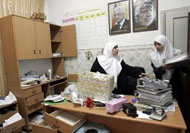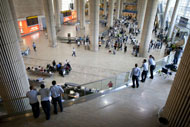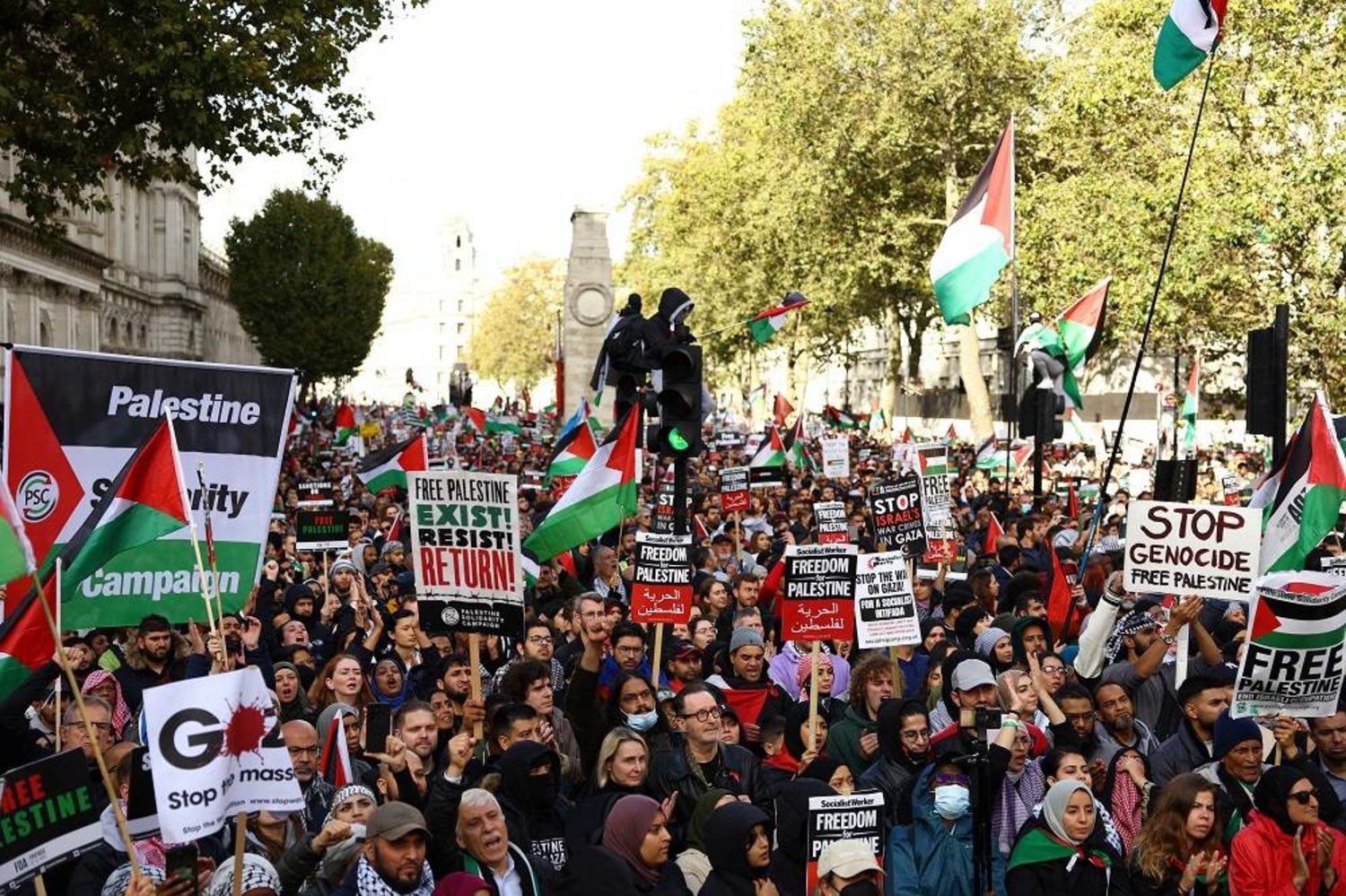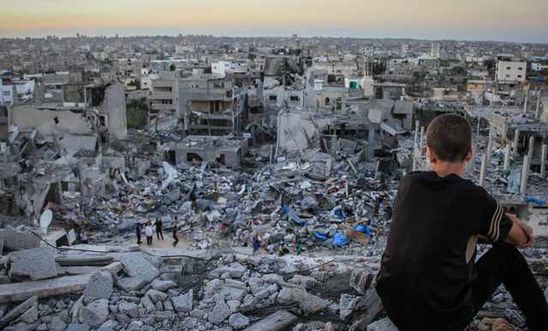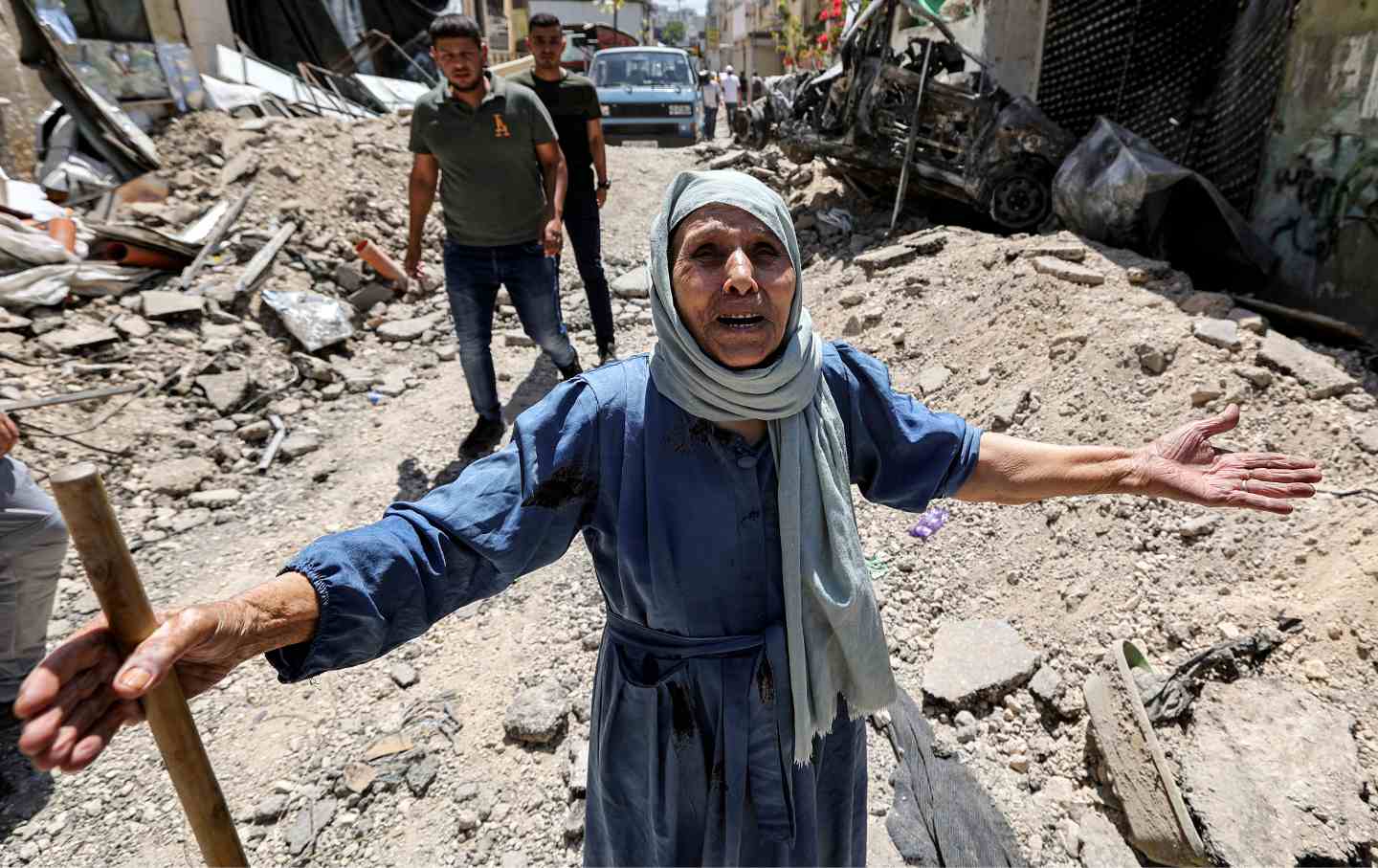Israel has never disguised its true intentions towards Hamas. For years, the Islamic movement has been a thorn in Israel's side, one which it has longed to extricate but has so far failed to do completely. Throughout the past decade or so, Israel has at times exploited Hamas for its own interests, the latter often unwittingly falling into the trap of becoming the Israeli occupation's pawn in this filthy game of chess. However, only now is it starting to look as if Israel might finally be getting its way.
Over the past few days, Israeli authorities have cracked down hard on the Hamas infrastructure in the West Bank, especially in Nablus. So far, Israeli occupation troops have stormed, raided and shut down dozens of shops, factories medical centers and charities in the city under the pretext of their affiliation with Hamas. Troops have also broken into the Nablus municipality headquarters, confiscated documents and computers and ransacked the premises. At least six mosques were also raided and five school buses expropriated. On July 7, Israeli Defense Minister Ehud Barak announced his government had outlawed 36 Palestinian NGO's he claims are linked to Hamas. While Israel has been carrying out this campaign against the movement for years, under this new legal umbrella, Israel can now move forward with its plans with full force.
It is no coincidence that this recent crackdown comes in tandem with the teetering ceasefire barely holding on in the Gaza Strip. While the Palestinians cannot be exonerated from blame for not strictly adhering to the terms of the ceasefire, Israel is certainly the more insidious culprit. The assassination of two Nablus residents a week into the ceasefire agreement was the first major indication that Israel had something else up its sleeve. When the Palestinian response to the killings was limited - the Islamic Jihad fired two rockets into Israel in what it said was only a response to the killing of its commander in Nablus – another course of action was pursued. Not that Israel needs any justification for assassinating Palestinian political activists – hundreds if not thousands have been targeted by Israeli forces since the start of the Intifada almost eight years ago. Now, however, the plan to finally annihilate Hamas as a reckonable political force is finally within sight and Israel is not going to lose the opportunity.
It already has all the machinations in place in the Gaza Strip and the backing of the international community for good measure. For over a year, the Strip has been under constant siege, its borders mostly clamped shut, only sporadically allowing necessary food, fuel and medical supplies into the 378 square kilometer area. The siege has taken an extremely harsh toll on the people, who whether they like it or not, are under the rule of the de facto Hamas government there. According to UNRWA, the percentage of anemic Gazans has risen from 19 percent in 2002 to approximately 77.5 percent at present due to the lack of a nutritional diet.
This has not deterred Hamas in Gaza nor has the bad rap deterred Israel for that matter. While Israel tightens and loosens its noose around the Strip just enough not to cause a major humanitarian crisis, it has securely established a justified purpose for maintaining this system to the outside world; the siege is necessary to block Hamas from its terrorist activities and ultimately protect the security of the citizens of Israel.
Now with a ceasefire in place, Israel can claim that despite Hamas' "terrorist" nature, it is trying its utmost to bring calm to the region while at the same time continuously pointing the finger at wayward Palestinian groups that insist on firing the random and largely ineffective rockets into Israeli territory. In the West Bank however, nothing is holding it back from finally zeroing in on Hamas in an attempt to weaken it to the point of neutralization.
Of course, killing off its operatives is one facet of the overall plan. Israel has unabashedly targeted scores of Hamas (and other) activists over the years, taking hundreds of civilians with them. Still, perhaps an equally important facet is cutting off the money supply, something Israel has kept its eye on for years. No organization can survive without cash flow and a solid network of institutions and individuals, which is one thing Hamas has prided itself on for years. One reason for its popularity is the social and economic benefits it provides for a large sector of the population, namely those associated with the movement itself. Cutting off these sources of funding is the most effective way of weakening the movement from the inside out and hence neutralizing it politically and making room for a less troublesome party to negotiate a future settlement.
This less troublesome party is, no doubt, the West Bank-installed government under President Mahmoud Abbas. Abbas has made no secret of his desire to reinstall a PA-backed authority in Gaza, constantly demanding that Hamas return the situation to its status quo prior to its takeover in June, 2007.
Hence, the crackdown on Hamas institutions in the West Bank could just benefit the Palestinian Authority government as well. The inter-Palestinian dialogue recently initiated by Abbas himself, which has yet to bear any real fruit, is slated for re-launching in Egypt. This time around, Hamas may not be included. An indication of this is Abbas' meeting with heads of Palestinian factions in Damascus. While the President met with several political leaders including the Islamic Jihad, Khaled Mashaal, Hamas' politburo chief was excluded from Abbas' agenda.
The political snub was apparently based on a recent letter sent by Meshaal to the Arab League accusing Abbas of using the national conciliation talks as a cover for Israel's actions in Gaza. Nabil Amr, Palestinian Ambassador to Egypt expressed the leadership's anger at the content of the letter, saying it included "unacceptable errors."
Nonetheless, it is common knowledge that no national conciliation will come into being without Hamas' participation. Its iron fist rule in Gaza has continued to be the major sore spot dividing Hamas and Fateh and one which must be resolved regardless of external factors, for the sake of the people. Hamas also has a responsibility to put the people first if it is ever going to survive on the playing field as a viable political player. As it stands, Israel – and the United States by proxy – is determined to bring Hamas down in any way possible. It is up to the leaders in Hamas and those in the PA to turn their enmity into partnership so together they can face the long haul ahead. A house divided is as good as a house fallen. Nothing could be closer to the truth.
Joharah Baker is a Writer for the Media and Information Programme at the Palestinian Initiative for the Promotion of Global Dialogue and Democracy (MIFTAH). She can be contacted at mip@miftah.org.




